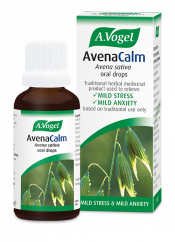An introduction to stress
Stress is, unfortunately, a common experience. We all know that this should not be the case, but many of us seem unable to avoid it – the modern world seems to put us under more and more pressure.
Stress can affect both our mental and physical wellbeing. It is not, in itself, a medical condition, but can lead to anxiety, low mood or depression
There are several ways to describe stress, including:
- Positive stress
- Negative stress
- Acute or short-term stress
- Chronic or long-term stress
All of these lead to the same physiological response in our body and the release of stress chemicals such as adrenalin into our bloodstream. The purpose of these chemicals is to make our minds more alert and prepare our bodies for action.
This is known as the ‘fight or flight’ reaction and is one of the primitive reflexes we have left over from our cavemen days. Back then, stress came about when we faced a large animal – we had to make the decision whether to run away from it or fight it so that our family could eat for a few days.
What causes stress
Today, we feel stressed because of a wide variety of different reasons including:
- Work
- Exams
- Relationships
- Illness or death
- Money problems
Stress can also be caused or exacerbated by the menopause. If you are going through this time of life and feeling more stressed than usual, this may be because the hormonal changes in your body have altered the chemical activities in your brain, making you less able to cope with stress.
Identifying the cause of your stress is the first step towards helping you find a solution. You can do this by examining your life to determine exactly what is putting you under so much pressure.
Symptoms of stress
Symptoms of stress can be physical or emotional.
- Physical symptoms include a feeling of heat rising up inside you, feelings of panic, trembling or shaking, heart pounding in your chest and shallow, quick breathing. These occur because of the stress chemicals being released into your blood as you prepare to fight or run
- Stress also gives rise to emotional symptoms. These include feeling tired, drained, irritable and unable to switch off. In general, these can take a bigger toll on your life and those around you than physical symptoms.
If you are worried about your symptoms, especially if they are affecting the way you think, feel and act, seek medical attention.
Effects of stress
Stress experienced over a period of time can lead to more long-term effects on the mind, altering the way you act, react, think, feel and respond to everyday situations.
Common emotional effects of chronic stress include:
- Emotional effects – this is the way you feel (eg. do you feel low in mood)
- Cognitive effects – this is the way that you think (eg. are you feeling positive?)
- Behavioural effects – this is the way that you respond and react to those around you
Stress can also give rise to a number of illnesses.
Stress related illness
On top of unpleasant emotional symptoms, stress can have a negative impact on your physical health and is a major factor in many of our modern day illnesses including:
- Skin problems and rashes
- Sleep problems and insomnia
- Headaches
- Cardiovascular disease (eg. heart problems, strokes)
- Digestive problems
- Cancer
Many of these are minor health complaints, but some such as cancer and heart problems, can have serious consequences.
Managing and coping with stress
Two groups of factors determine how well we cope with stress – these are known as external and internal factors, and are also sometimes referred to as ‘stressors’.
- External factors generally lie within our environment and the people around us. If work, relationships, friends and home life are making us feel happy and secure, we are able to cope with stress better
- Internal factors are what we are born with, otherwise known as our personality. This determines how we react to the stresses we face. We know looking around us, that some people just appear to cope with stress better than others.
How well each person reacts to stress can vary from one day to the next. This is because factors such as our general health and fitness levels, emotional state, nutritional balance and the amount of rest and sleep we are getting have a major influence on how we cope with stress.
People under stress find that they cope better after mastering a number of stress management techniques. In addition, you may find that herbal remedies can be effective in helping you manage your stress symptoms.
These are generally preferred to conventional medicines as they are not associated with the same level of side effects. Valerian and Avena sativa are the most common herbs used for counteracting the symptoms of stress.










